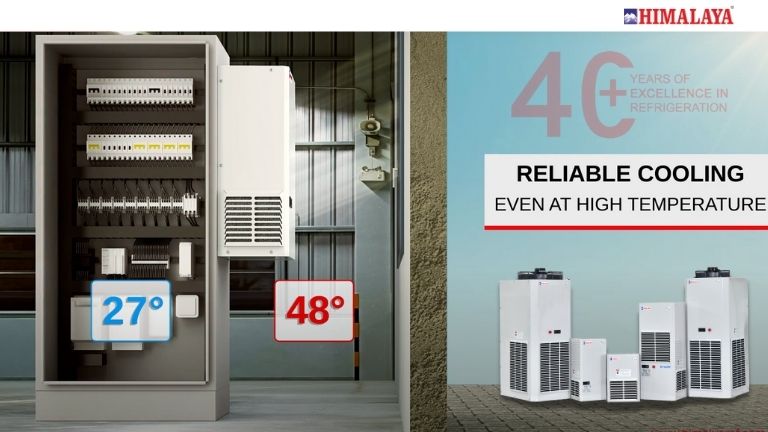
As technology advances and industries rely more on sophisticated electrical systems, maintaining the health and efficiency of electrical enclosures has never been more critical. These enclosures house sensitive equipment like PLCs, drives, and other electronics that keep your production lines running. One of the most important aspects of maintaining these systems is ensuring that they are adequately cooled. Overheating can lead to costly breakdowns, production delays, and even permanent damage to vital equipment.
Why Cooling Matters :
Electrical enclosures are designed to protect sensitive components from external elements like dust, moisture, and physical damage. However, they also trap heat generated by the equipment inside. Without proper cooling, the temperature within these enclosures can rise quickly, leading to a host of problems. High temperatures can degrade components, cause malfunctions, and significantly reduce the lifespan of your equipment. In fact, studies have shown that every 10°C increase in temperature can halve the life expectancy of electronic components.
Choosing the Right Cooling Method:
There are several methods available for cooling electrical enclosures, and choosing the right one depends on the specific needs of your operation. Here are a few common options:
1. Natural Ventilation: This method relies on natural air circulation to dissipate heat. It's suitable for environments where the ambient temperature is low and the heat load is minimal. However, it's not ideal for more demanding applications, as it doesn't provide precise control over the enclosure's internal temperature.
2. Forced Air Cooling: Fans are used to circulate air through the enclosure, providing more effective cooling than natural ventilation. This method is often used in conjunction with air filters to keep dust and other contaminants out. It's a good option for moderate heat loads and environments where air quality can be controlled.
3. Panel Air Conditioners: For high heat loads or environments where precise temperature control is essential, dedicated air conditioning units can be installed. These units provide powerful cooling and can maintain a consistent temperature, making them ideal for protecting sensitive equipment in harsh conditions.
4. Water to Air Heat Exchangers: These systems use a water to transfer heat away from the enclosure. Heat exchangers are highly efficient and are commonly used in industrial settings where space is limited, and the heat load is substantial.
Signs Your Panel Air Conditioner Needs Attention:
Even the best cooling systems need regular care to keep working properly. Here are some signs that your system might need help:
• Temperature Problems: If the temperature inside your enclosures keeps changing or isn't staying at the right level, your cooling system might be having trouble.
• Frequent Equipment Issues: If equipment keeps breaking down or shutting off, it might be overheating, possibly because the cooling system isn't working right.
• Dust or Dirt Inside: If you see dust or dirt inside your enclosure, it could mean the filters need to be changed or there are leaks letting dust in.
• Strange Noises: If you hear unusual sounds from the fans, air conditioners, or heat exchangers, it could be a sign of mechanical problems that need fixing.
Regular Maintenance Keeps Your Cooling Systems Running smoothly
To avoid expensive problems caused by overheating, follow a simple maintenance routine for your cooling systems:
• Inspect Regularly: Check for wear and tear like damaged seals, clogged filters, or strange noises. Fixing small issues early can prevent bigger problems.
• Clean or Replace Filters: Keep air filters clean and change them when needed to ensure proper airflow and keep contaminants out.
• Test Temperature Controls: Regularly test controls to make sure they work properly and maintain the right temperature.
• Monitor Performance: Use monitoring tools to track temperature and system performance. This helps catch problems early.
The Bottom Line
Proper Panel AC is essential for the longevity and reliability of your electrical enclosures. By choosing the right cooling method and maintaining your systems regularly, you can prevent costly downtime, extend the life of your equipment, and ensure that your production lines continue running smoothly. Don’t wait until a failure occurs—take proactive steps today to safeguard your electrical systems from the damaging effects of overheating.
For more information on electrical enclosure cooling solutions, or to schedule a consultation, visit www.himalayaref.com, contact our team at 9979 5555 11, or email us at sales@himalayaref.com

